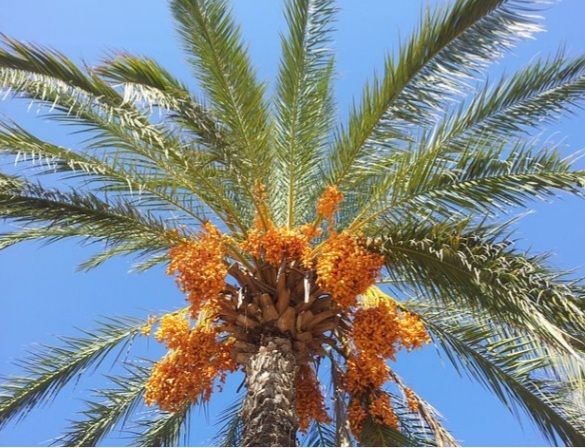In The Name of Allāh, The Most Merciful, The Bestower of Mercy.
After Allāh, The Most High, appointed Musa, peace be upon him, and showed him magnificent signs, he was sent to Fir’awn – the king of Misr. Allāh, The Most High, said to Musa:
ٱذۡهَبۡ إِلَىٰ فِرۡعَوۡنَ إِنَّهُ ۥ طَغَىٰ
Go to Fir’aun (Pharaoh)! Verily, he has transgressed all bounds.
Meaning: Fir’awn has rebelled and transgressed all the limits in disbelief and corruption. He has become haughty in the earth, overpowered the weak, claimed Ar-Rububiyyah [Lordship for himself] and al-Uluhiyyah [that he deserves to be worshipped]. This transgression of his was the cause of his destruction, but due to Allah’s Perfect Mercy, Wisdom and Justice, He does not punish anyone until after establishing the proof by sending Messengers.
Musa, peace be upon him, knew that he was going to shoulder a great responsibility because he was going to be sent to an obstinate and arrogant dictator, who had no opponent in Misr -amongst the people- to oppose him. He was by himself after killing someone [unintentionally]; but after Allah commanded him to go to Fir’awn, he obeyed Allah’s command, accepted it wholeheartedly, asked Allah for assistance and to facilitate him with the ability to (fulfil the task). Allah said that Musa said:
رَبِّ ٱشۡرَحۡ لِى صَدۡرِى
O my Lord! My expand my heart.
Meaning: Grant me self-confidence and courage so that I can bear both verbal and physical harm, and so that I neither grieve nor become fed up due such harm, for indeed a person with an aggrieved heart is not fit to guide and invite the people to (Allah’s guidance).
وَيَسِّرۡ لِىٓ أَمۡرِى
And ease my task for me.
Meaning: Grant me ease in every affair I pursue and every path I intend to follow, whilst calling to your guidance; and lighten the difficulties in front of me. The caller is granted ease when he approaches all affairs in the appropriate manner; addresses every person based on what they should be addressed with, and calls them through a path that is easier for them to understand, which will enable them to accept his speech.
وَٱحۡلُلۡ عُقۡدَةً۬ مِّن لِّسَانِى
And make loose the knot (the defect) from my tongue, (i.e. remove the incorrectness from my speech) [That occurred as a result of a brand of fire which Musa (Moses) put in his mouth when he was an infant].
يَفۡقَهُواْ قَوۡلِى
That they understand my speech.
Musa used to suffer from a speech impediment and it was difficult to understand his speech as the Mufassiroon have stated, just as Allah says in another verse that Musa said:
وَأَخِى هَـٰرُونُ هُوَ أَفۡصَحُ مِنِّى لِسَانً۬ا
And my brother Haaroon (Aaron) he is more eloquent in speech than me.
He asked Allah to remove the speech impediment so that what he says can be understood and the people he speaks to can clearly grasp what is intended by his speech.
وَٱجۡعَل لِّى وَزِيرً۬ا مِّنۡ أَهۡلِى
And appoint for me a helper from my family,
هَـٰرُونَ أَخِى
Harun (Aaron), my brother,
ٱشۡدُدۡ بِهِۦۤ أَزۡرِى
Increase my strength with him.
Meaning: to be my helper and my assistant in delivering the message to those whom you have sent me to deliver your message, as Allah said in another verse:
سَنَشُدُّ عَضُدَكَ بِأَخِيكَ وَنَجۡعَلُ لَكُمَا سُلۡطَـٰنً۬ا
We will strengthen your arm through your brother, and give you both power.
وَأَشۡرِكۡهُ فِىٓ أَمۡرِى
And let him share my task.
Meaning: Grant him prophet-hood and make him a Messenger, just as you have made me a Prophet and a Messenger.
Then Allah informs us of the benefit Musa was seeking by asking for such favours, which is:
كَىۡ نُسَبِّحَكَ كَثِيرً۬ا
That we may glorify You much.
وَنَذۡكُرَكَ كَثِيرًا
And remember You much.
Musa knew that acts of worship and the religion revolves around remembrance of Allah, thus he asked Allah to make his brother a partner in that – aiding and helping one another in righteousness and piety; to remember Allah profusely by way of Tasbeeh [i.e. Subhanallah], Tahleel [i.e. laa ilaaha illal laah] and other types of worship.
إِنَّكَ كُنتَ بِنَا بَصِيرً۬ا
Verily! You are of us Ever a Well-Seer.
Meaning: You know our situation and weaknesses; what we can and cannot do, and our complete need of You in every affair. You see our affair more than us [i.e. you see everything and nothing escapes your sight] and you are more Merciful to us than we have for ourselves; therefore bestow upon us what we have asked You and respond to our supplication.
After he made these supplications and requests, Allah said to him:
قَدۡ أُوتِيتَ سُؤۡلَكَ يَـٰمُوسَىٰ
You are granted your request, O Musa (Moses).
Meaning: I will grant you everything you’ve asked. I will grant you courage, make your task easy and remove the speech impediment from your tongue, so that your speech is understood; and I will make your brother -Hurun – your helper. Allah said in another verse:
وَنَجۡعَلُ لَكُمَا سُلۡطَـٰنً۬ا فَلَا يَصِلُونَ إِلَيۡكُمَاۚ بِـَٔايَـٰتِنَآ أَنتُمَا وَمَنِ ٱتَّبَعَكُمَا ٱلۡغَـٰلِبُونَ
And give you both power, so they shall not be able to harm you, with Our Ayat (proofs, evidences, verses, lessons, signs, revelations, etc.), you two as well as those who follow you will be the victors.
These requests made by Musa show his perfect knowledge and awareness of Allāh, his perfect discernment, perfect knowledge about affairs and perfect sincerity. This is because the caller to the path of Allah- the one who guides the people, especially if the one being invited to the path of Allah is from the obstinate and haughty ones, and transgressors- is need of a courageous heart and complete forbearance, in order to bear the harm he might come across. He is in need of clear speech, in order to be able to express himself to the one he intends and wishes to address. Rather, a person in such a situation needs clear eloquent speech in order to present the truth in a proficient manner, beautify it as much as he is able and make it appealing to the people.
On the other hand, he shows the ugliness of falsehood, so as to repel people from it. Besides this, the caller is in need of being granted ease in his task by approaching affairs in the proper manner – calling to the path of Allah with wisdom, fine admonition and arguing in the best way. He should deal with every person whilst taking into consideration the situation of each person he addresses.
This matter becomes more accomplished when the caller has helpers and assistants, who will help him to reach this goal because when many people speak, it will have an effect and that is why Musa made those requests. If you examine the situation of the prophets – those sent to the people- you will discover this affair, especially the seal and most virtuous amongst them, Muhammad, peace and blessings of Allāh be upon him because he was at the highest peak in every perfect and good human characteristic. He had a courageous heart and was facilitated with the means of calling to Allah. His speech was eloquent – with fine expression and explanation- and he had companions who aided him to convey the truth, and (besides the Prophets and Messengers) none can ever excel those companions of Muhammad after their departure from this world. [1]
Imam Ibn Qayyim, may Allāh have mercy upon him, said:
A man asked Imam Ash-Shaafi’ee, may Allāh have mercy upon him, saying: “What would be better that one is granted strength and the authority to establish the path of Allah and His Messengers without any hindrance from those who belie or oppose Allah and His Messengers, or face trials (at first)?” Ash- Shaafi’ee said to him, “One will not be given strength and the authority to follow the path of Allah without any hindrance from those who belie or oppose Allah and His Messengers until after facing trials; for indeed Allah tried Nuh, Ibrahim, Musa, Eesa and Muhammad; then after they exercised patience, they were granted authority and strength to establish the path of Allah without hindrance”. Therefore, one should never think that he will escape pain. This is a great principle, thus, it is obligated to a sane person to be acquainted with it. Everyone will face afflictions, for indeed a person is a social being who must live with people; the people have wants (or desires, wishes etc) and perceptions, and will seek to make him agree with them. If he disagrees with them, they harm and punish him; but if he agrees with them, sometimes they harm him and at other times he is harmed by others.
Allah said:
فَٱصۡبِرۡ إِنَّ وَعۡدَ ٱللَّهِ حَقٌّ۬ۖ وَلَا يَسۡتَخِفَّنَّكَ ٱلَّذِينَ لَا يُوقِنُونَ
And let not those who have no certainty of faith, discourage you from conveying Allah’s Message (which you are obliged to convey)]. [Surah Ar-Rum’ 60]
Unlike the person upon certainty, the person who has no certainty in faith (or lacks certainty) does not remain firm, rather he acts carelessly, whereas certainty is the firm Iman in the heart based on knowledge and action. It may be that a person has sound knowledge but does not exercise patience during calamities; rather he is swayed by emotion.
Al-Hasan Al-Basri, may Allāh have mercy upon him, said:
If you wish to see someone with insight but has no patience, you will see him; and if you wish to see someone who has patience but not insight, you will see him; but if you see a person who has insight as well as patience, he is the one that Allah mentions in the verse:
وَجَعَلۡنَا مِنۡہُمۡ أَٮِٕمَّةً۬ يَہۡدُونَ بِأَمۡرِنَا لَمَّا صَبَرُواْۖ وَڪَانُواْ بِـَٔايَـٰتِنَا يُوقِنُونَ
And We made from among them (Children of Israel), leaders, giving guidance under Our Command, when they were patient and used to believe with certainty in Our Ayat (proofs, evidences, verses, lessons, signs, revelations, etc.)]. [As-Sajdah’ 24] [2]
Imam As-Sadi said about this verse (Ar-Rum 60): [فَٱصۡبِرۡ – So be patient]: Meaning, upon that which you have been commanded and in calling them to the (path of) Allah; even if you see them turning away that should not turn you away from the call.
إِنَّ وَعۡدَ ٱللَّهِ حَقٌّ۬ۖ
Indeed, the promise of Allah is true.
Meaning, there is no doubt about that. This is from that which aids a person to exercise patience because when a servant (of Allāh) know that his deeds will not be in vain and will find a full reward for it (in the afterlife), then what he faces of hardship will become minor, and it will become much easy for him to bear every difficulty.
وَلَا يَسۡتَخِفَّنَّكَ ٱلَّذِينَ لَا يُوقِنُونَ
And let not those who have no certainty of faith, discourage you.
Meaning, their Iman is weak and their certainty is little, so their forbearance becomes lacking as result and their patience is little.
So, beware – out of fear – of being discouraged by these people because unless you are not careful about their affair, they will discourage you and lead you to not being firm in holding fast to the commands and prohibitions, and the soul may assist them in this affair, seek to be similar and to be in agreement with them. [3]
We ask Allāh:
اللَّهمَّ إنِّي أسألُكَ الثَّباتَ في الأمرِ والعزيمةَ على الرُّشدِ
O Allah! I ask You for firmness in this matter and determination to adhere to the path of guidance. [4]
[1] An Excerpt from ‘Tayseer al-Kareem Ar-Rahmaan Fee Tafseer kalam al-Mannaan’. explanation of Verses 24-36 Surah Taha). Slightly paraphrased
[2] An Excerpt from ‘Al-Fawaa’id’ pages 293-300. slightly paraphrased
[3] An Excerpt from ‘Tayseer al-Kareem Ar-Rahmaan Fee Tafseer kalam al-Mannaan’.
[4] Declared Saheeh Li-Ghayrihee By Imaam Al-Albaanee in Takhreej Mishkaat Al-Masaabeeh 915










